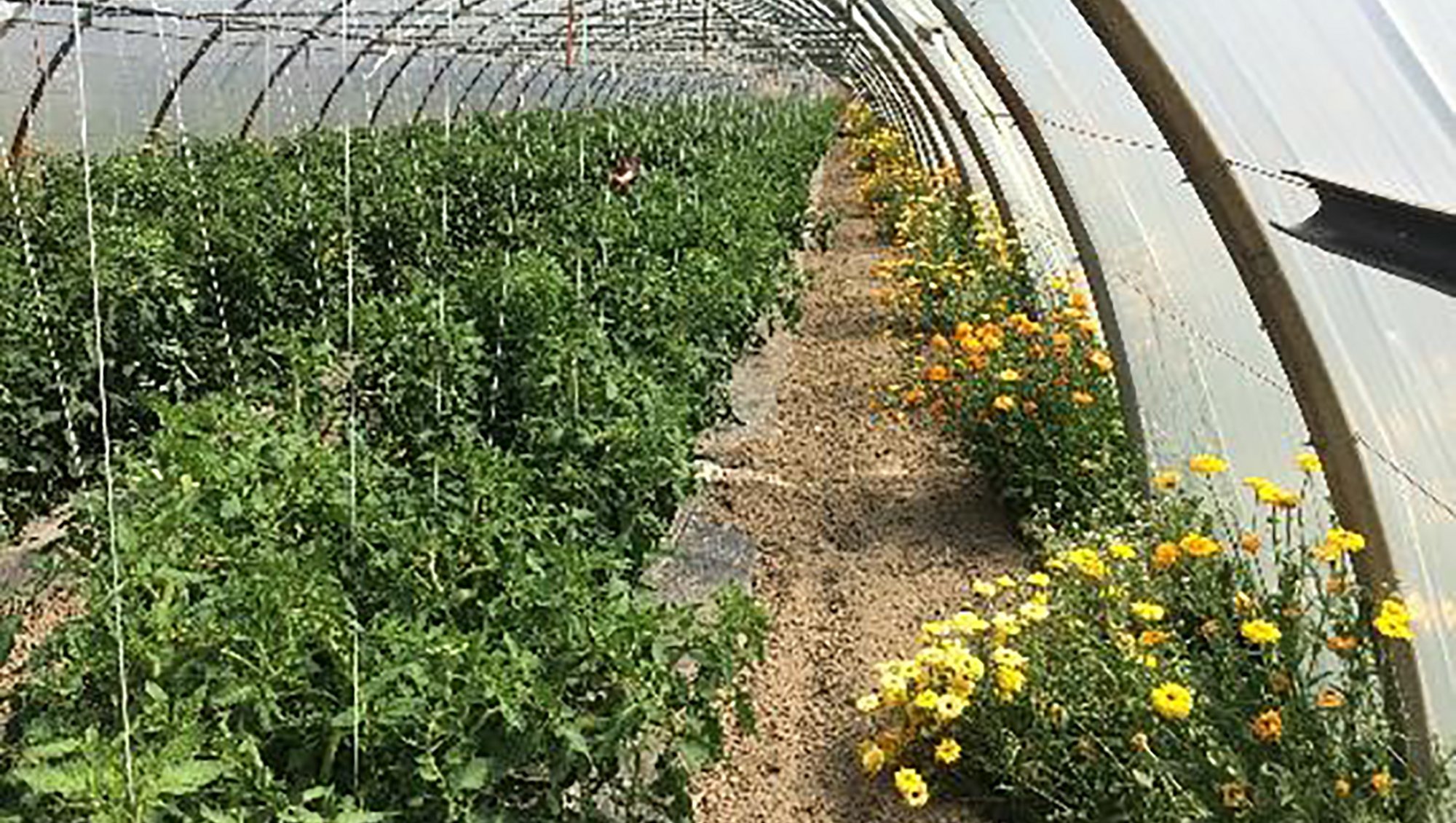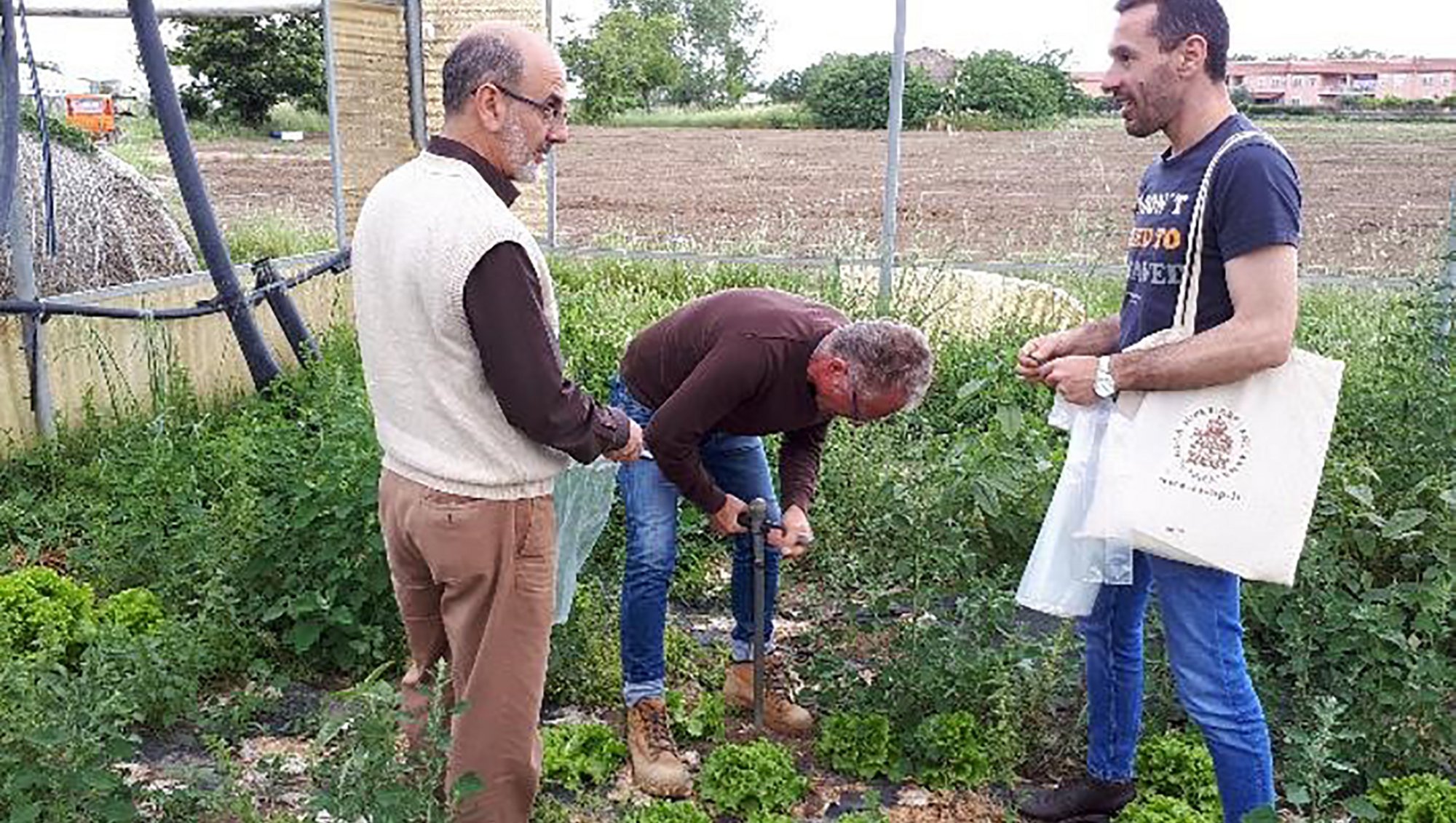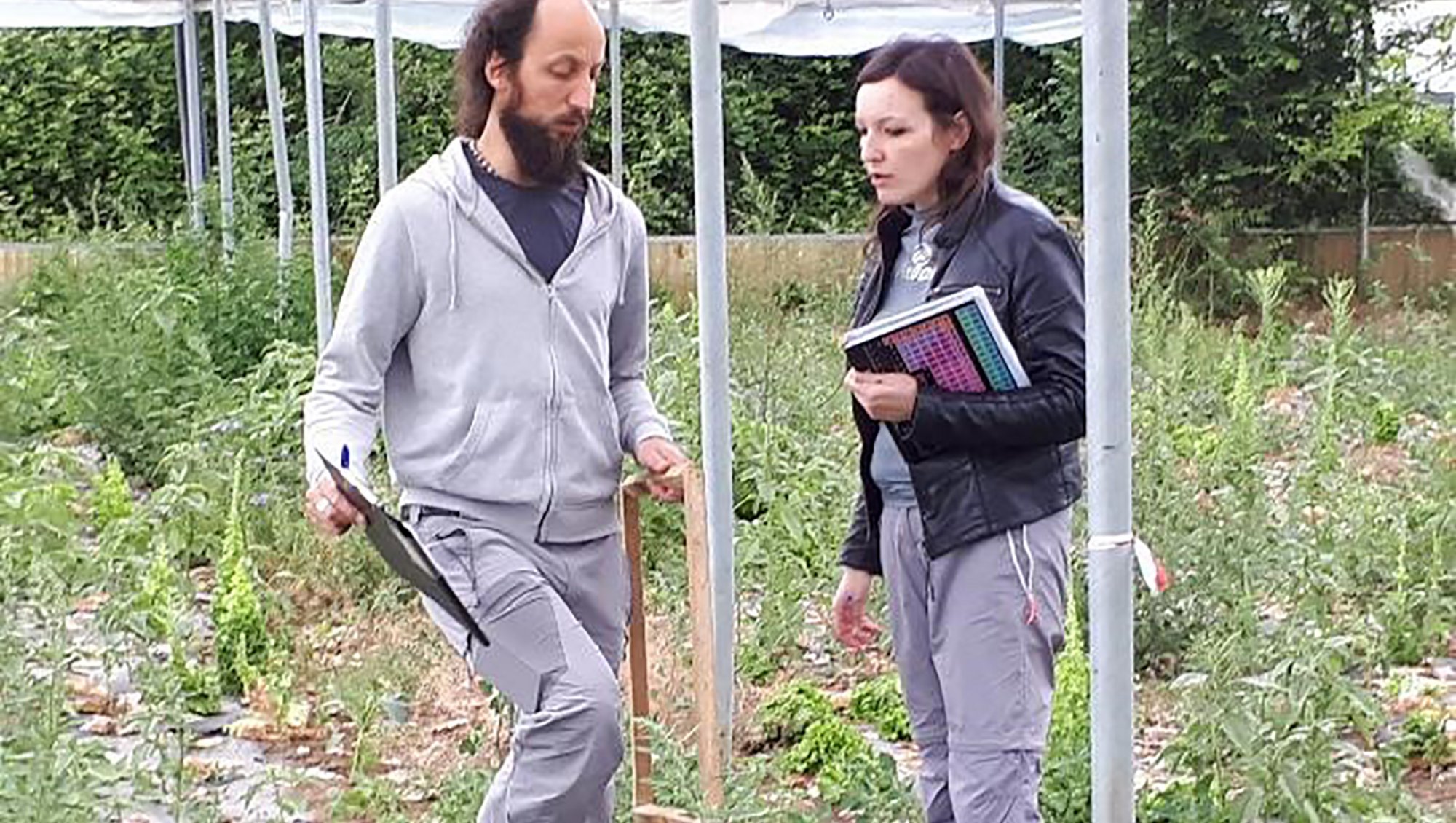GreenResilient
- How to implement agroecological practices in organic greenhouse production in Europe
Introduction
The main objective of the Greenresilient project (Organic and bio-dynamic vegetable production in low-energy GREENhouses – sustainable, RESILIENT and innovative foodproduction systems) is to demonstrate that an agroecological approach to organic greenhouse production is feasible in different European areas.
All over Europe, organic greenhouse production systems are usually very intensive, which threatens their sustainability and the public trust in organic greenhouse production.
The implementation of less intensive production systems based on low energy consumption, appropriate crop rotations, use of agroecological service crops such as mixtures of legumes and brassicas, and local organic inputs is possible at almost any latitude in Europe.
With the Greenresilient project, we want to demonstrate that it is feasible to implement such systems by conducting experiments in Denmark, Belgium, France, Switzerland and Italy.
Background
Very intensive production systems lead to an increase of pH, high levels of soil salinity and an unbalanced nutrient supply. Moreover, the use of a broad spectrum of crop protection agents, which are allowed in organic farming, limits the instances and effectiveness of natural enemies and reduces the quality of organic products, consumer trust and the environmental sustainability of organic vegetable production under protected conditions.
Main project activities
- On five experimental sites, from Northern to Southern Europe, intensive organic production systems will be compared with completely redesigned, less intensive cropping systems, using a 2-year crop rotation.
- The effects of agroecological service crops in greenhouse crop rotation will be evaluated.
- New (or underutilized) winter leafy vegetables, which grow under unheated (or frost-free) conditions, will be introduced into the crop rotation.
- The effects of the redesigned cropping systems on below and above ground micro and macro fauna as well as flora will be evaluated.
- The sustainability of the compared production systems will be evaluated using Life Cycle Assessment tools.
- All innovative techniques will be disseminated through different communication tools to farmers and other stakeholders.
Benefits and results
Expected long-term societal benefits
The project will contribute to the assessment of innovative organic production systems in protected conditions in different regions of Europe. The completely redesigned innovative systems will maintain/increase soil organic carbon and will prevent problems, such as pest and disease attack, spread of weeds, rather than controlling them. Redesigned cropping systems will be less dependent on fossil fuels and broad spectrum crop protection agents. Low-energy production systems will help increase consumer demand for local and healthy food produced in greenhouses.
In Southern European countries, where reducing the use of plant protection products such as copper is one of the main issues in organic agriculture, a redesign of cropping systems is needed to establish robust agroecosystems without additional inputs.
The Greenresilient project aims to help change the food system through direct involvement of consumers and farmers at the local level. Consumer awareness of food quality and vegetable production systems can be improved by organizing visits to the farm and proposing alternative food consumption models.
27.08.2020: Open House in organic vegetable production presenting Green Resilient research, see full progam (in Danish)
Coordinator
Fabio Tittarelli; Consiglio per la ricerca in agricoltura e l'analisi dell'economia agraria - Centro di ricerca Agricoltura e Ambiente (CREA - AA), Via della Navicella 2, 00184 Rome, Italy, fabio.tittarelli(at)crea.gov.it
Project partners
- Consiglio per la ricerca in agricoltura e l’analisi dell’economia agraria - Centro di ricerca Agricoltura e Ambiente (CREA-AA), Italy
- SLU Swedish University of Agricultural Sciences, Sweden
- PCG Vegetable Research Centre Kruishoutem, Belgium
- FiBL- Research Institute of Organic Agriculture, Switzerland
- GRAB Groupe de Recherche en Agriculture Biologique, France
- ILVO Institute for Agricultural and Fisheries Research, Belgium
- AU-FOOD Aarhus University, Department of Food Science; Denmark
- Agroscope; Switzerland
- HBLFA Federal Ministry of Agriculture, Forestry, Environment and Water Management; Austria
- UvA Institute for Biodiversity and Ecosystem Dynamics, The Netherlands
- WUR Stichting Wageningen Research, The Netherlands
- La Colombaia Società Agricola; Italy
Implementation and plans to reach target groups
The different target groups will be addressed according to their needs and preferences. Vegetable growers and consumers will be invited to experimental site visits, and techniques will be explained using video clips and short and concise factsheets. Consumers will be addressed using articles in magazines about food and through social media.



